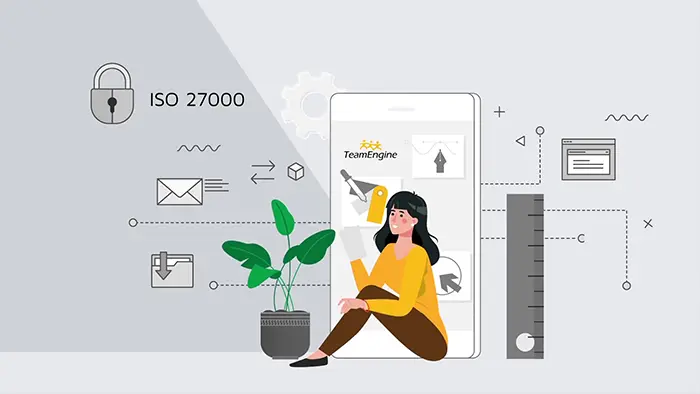5 examples on how a board portal can improve security
In recent years, the rise of cyber threats has made data security a top priority for organisations worldwide. Board meetings, where confidential information is discussed, can be a prime target for hackers seeking to gain access to sensitive data. To address this issue, board portals have emerged as a secure platform for board members to access and share confidential information. TeamEngine’s Board Portal offers advanced security features that can help protect sensitive data from cyber threats. From secure document sharing to mobile device security, these features provide accountability, transparency, and peace of mind.

In this blog post, we will explore five examples on how a board portal can improve security and ensure that board meetings are secure and that your confidential information remains protected.
- 1. Secure Access: A board portal can provide secure access to board materials and information by implementing various security protocols such as encryption, two-factor authentication, and access control lists. These measures help to ensure that only authorised users have access to sensitive information, reducing the risk of data breaches.
- 2. Permission Controls: A board portal can offer granular permission controls to govern who has access to which documents and information. This helps organisations to reduce the risk of data leaks or unauthorised disclosures by limiting access to sensitive information to only those who need it.
- 3. Audit Trails: A board portal can track all user activity, document changes, and meeting events through comprehensive audit trails. This helps organisations to keep track of who accessed what, and when, providing transparency and accountability. Audit trails can also help organisations to detect and investigate potential security incidents.
- 4. Encrypted Communication: A board portal can facilitate encrypted communication between board members and executives. This helps to prevent eavesdropping and unauthorised access to sensitive information during meetings. Encrypted communication also helps organisations to comply with data protection and privacy regulations.
- 5. Secure Document Sharing: A board portal can enable secure document sharing through encrypted file transfers, version control, and document expiration. This reduces the risk of data leaks or unauthorised access to sensitive documents, both during and after meetings. Secure document sharing also helps organisations to comply with data protection and privacy regulations.
In summary, a board portal is an essential tool for any organisation that values security and confidentiality. It provides a secure and centralised platform for managing board-related activities, ensuring that sensitive information is protected. If you want to experience the benefits of the TeamEngine board portal for yourself and get a sense of how the platform works and therefore whether it meets your organisation's needs, why not sign up for a free trial today. Contact us now to learn more.
Download the article